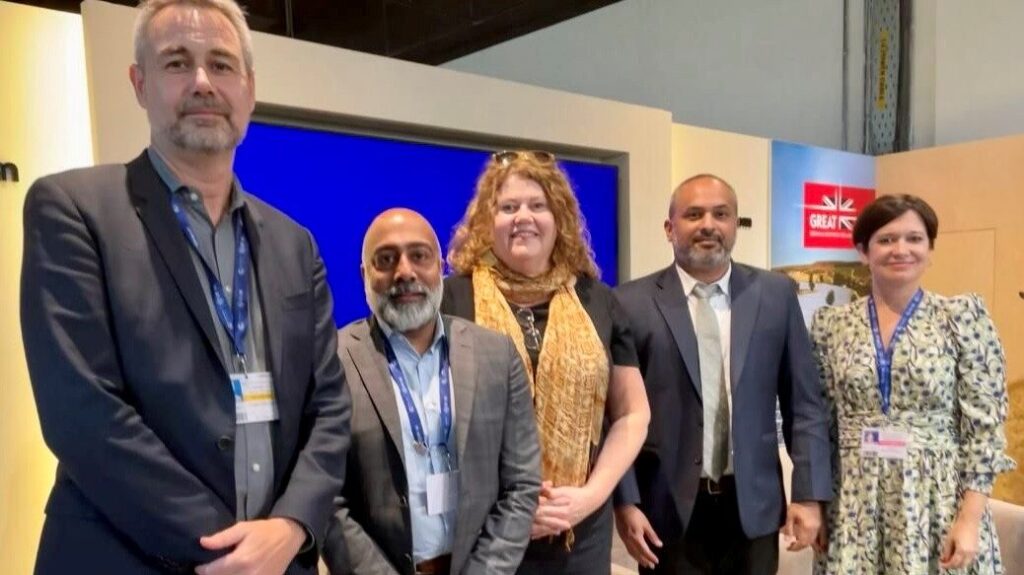
Transport systems are complementary and essential to sustainable economic development as they provide access to fundamental goods and services (food, healthcare, education) and economic opportunities like work. Access to transport services is not equitably distributed amongst populations: marginalised groups including women and girls, people on low income, and people with disabilities are less likely or able to use existing transport systems. Transport systems are also vulnerable to the impacts of climate change, and their disruption has a disproportionate impact on poorer people. Aside from being unequal, current transport systems are highly polluting. Transport accounts for 23% of global energy-related CO2 emissions and, of this, 70% comes from road vehicles.
CCG in transport means supporting the development of sustainable, affordable and inclusive transport systems for fair access to basic goods and services in a way that meets economy-wide emissions and climate resilience targets. To achieve this goal, CCG’s Transport Systems Research Community provides and co-creates research, knowledge and public goods to support investment and the development of local capacity. These will enable LICs and LMICs to advance resilient, low-carbon transport infrastructures and services to provide access to goods and services for all of their people, equally.
Research Priorities
The goal of the Transport Systems Research Community for 2030 is to leave a legacy of greater independent capacity in the development of low-carbon and climate-resilient transport systems that enable clean, safe, and equitable access for all. In achieving this vision, our work focuses on the following research priorities:
- The development of open transport data platforms and data infrastructures to improve the quality and availability of the transport data landscape for transport and energy system models and equity analysis. An example of this is our co-funding of the Transport Data Commons Initiative (TDCI) with 30+ international organisations.
- The development of detailed representations of the transport system in whole energy system models to support LICs’ and LMICs’ long-term development goals, thus building on the D2D approach.
- With relation to this, the application of socio-technical approaches in developing transport system models, allowing for more detailed representation of transport-energy system phenomena than other models and the co-creation of future scenarios with local stakeholders. Specifically, this involves the development of OSeMobility, the first open-source transport-energy model designed with LMICs in mind. It will combine a socio-technical approach to modelling transport demand with a choice-based vehicle stock model, allowing stakeholders to explore the quantitative impacts of credible transport scenarios. It will be rooted in open-source data, including OpenStreetMap, to enable rapid development of new models with a modular approach to suit varying levels of data availability. OSeMobility will be linked to the rest of the D2D workflow, thus enhancing the level of detail afforded to transport in whole energy-system models and allowing stakeholders to link spatial and temporal analyses in evaluating transport-energy system futures.
- The development of decision support tools, effectively communicating the results of CCG co-developed transport models to provide evidence that supports policy and investment towards equitable and GESI-transformative climate-compatible transport transitions in LICs and LMICs. The latest research and tools by HVT on climate, gender and inclusive transport will be considered in future work.
- The delivery of these decision support tools at scale, including working with MDBs – notably the Asian Development Bank (ADB), with whom FCDO has established a memorandum of understanding to accelerate deployment of CCG tools in advancing low-carbon transport pathways in Asia and the Pacific. The objective of the partnership is to facilitate ADB’s Developing Member Countries (DMCs) to move from Data-to-Deal.
- The CCG-ADB partnership aims to reach its objectives by establishing key partnerships among IFIs and development agencies active in the region, thus maximizing its impact on the ground. The project aims to focus on four DMCs in the region, where separate aspects of the D2D approach are piloted, but also developing a regional approach through capacity building and knowledge sharing (e.g. integrating transport in the CCG summer schools), paving the way for scaling up the approach in other DMCs in the region.
- Further, the development of investment strategies that result in investable pipelines will be an especially relevant step of the D2D approach for International Finance Institutions, and this is why the project aims to assess using the D2D approach in the background to directly support the development of investment strategies, e.g. of existing (or updated) NDCs.
- The development of training content and delivery to support capacity building in the development of clean, safe, equitable, low-carbon and climate-resilient transport systems in LICs and LMICs. It is planned to build in the transport sector in future summer schools hosted by CCG.
- To analyse questions of climate resilience of transport networks, and interventions to equitably enhance resilience, this Research Community will work in tandem with the Infrastructure Resilience Research Community, which is developing spatial models of transport flows to identify hotspots of climate exposure and prioritize resilience interventions.
The Transport Systems Research Community




| Title | Type | Countries | Authors |
|---|

